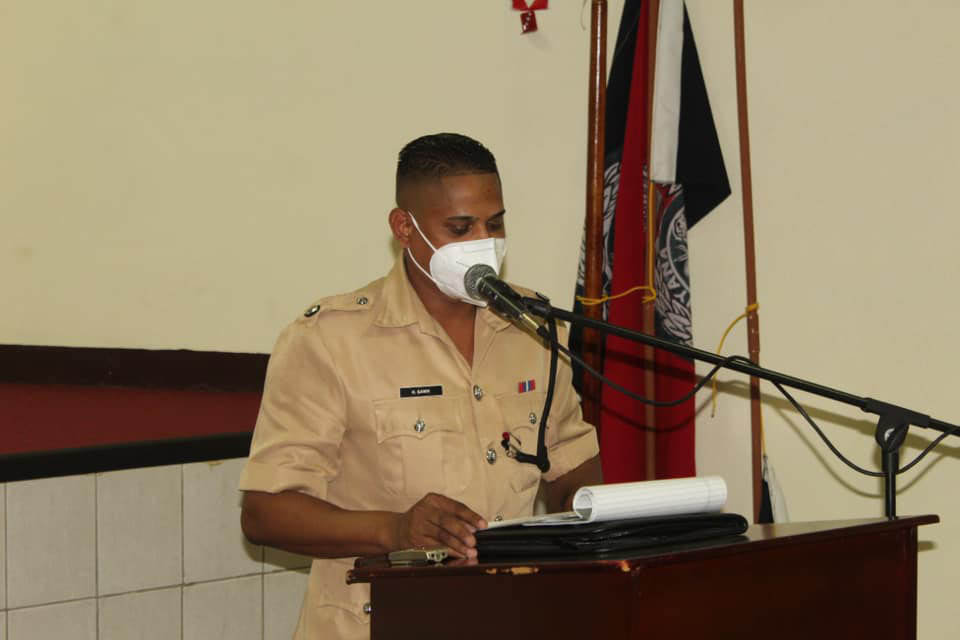Incidents of wounding, domestic violence and assaults are some of the most prevalent crimes in the community of Baramita, in Region One, and Police Commander Superintendent Himnauth Sawh has said that the necessary actions are being taken to tackle the social issues at their root, which he described as “manageable”
“I am pleased to report that I am aware of those issues and I have already begun to make efforts with my teams across the region to ensure that we get greater community involvement because most of those issues are social issues and we as the police can’t tackle it alone. We need the stakeholders and the members of the public to come on board,” Sawh told Stabroek News in a recent interview.
In a letter to the editor, published in the April 13, 2022 edition of Stabroek News, former ministerial advisor on indigenous affairs Mervyn Williams declared that Baramita was “again in crisis”.
Apart from an “alarmingly high” rate of suicide and interpersonal violence, Williams highlighted that the community has seen a large number of foreigners and he said many of them do not possess documentation but are operating businesses.
Williams called for the people of the community to be protected from “exploitation, abuse and diseases”.
In a telephone interview with Stabroek News on Thursday, Sawh denied the claim that Baramita is in a crisis.
Instead, he said, it is an area that requires “much” attention. “It’s not a case where you have police being unable to respond to people’s report. That I would call a crisis… I would say it is an area that requires much attention indeed but it is manageable. The affairs of what is going on there is manageable. It has not reached a point where we can’t control what’s going on,” Sawh said.
Sawh, who took up the post as Commander of the Region just a few weeks ago, said he inherited some of the existing issues. “Baramita is an area that is known to have [a] high suicide rate and based on my findings so far, the culture of the type of people that live in that community… whenever they drink alcohol and they engage, they end up with violence,” he said.
He noted that from the enforcement level, the issues are being addressed and once a report is made to the police, it would be dealt with.
“We get feedbacks from the ground. We just don’t sit and wait on our offices until somebody comes and makes a report. We get into the community, we walk the ground, we engage people, we share pamphlets, we give them contact cards for the key people in charge of the various level… Making access reach those places and communities where it might be difficult for those people to come to us,” Sawh explained.
Upon learning of the various issues, Sawh said he immediately intervened and has since held a number of community outreaches and meetings with stakeholders and members of the business community in order to craft a response.
Just last week, he said, he led a high-level team to the communities of Port Kaituma, Matthews Ridge and Baramita in the No.2 Sub-Division.
The purpose of the visit was to engage stakeholders, especially members of the business community, to foster greater community policing relationships, to ensure that the police engage the community members and to form scout groups, youth groups, community policing groups, a station management committee and resuscitate old groups that existed.
Additionally, he said he continued to engage ranks of the region and recently held an instruction class with them.
As it relates to illegal shops and the sale of alcohol, Sawh explained to Stabroek News that permission is granted by the Toshao and as a result the police do not have much control over that situation. However, he noted that to address the issues, the police have been partnering with the Guyana Revenue Authority (GRA). “By ensuring that persons who actually operate are with licences and so on,” Sawh said.
Regular joint patrols and stop and search exercises are also being conducted, Sawh said.
“My teams of police here had engaged the GDF [Guyana Defence Force] and there are joint patrols being conducted. The joint patrols are targeted patrols basically. They move to most of the locations where information received suggests that there are illegal shops operating. We are also conducting stop and search exercises where persons are checked for knives and other weapons that they carry around because we find that after they drink their alcohol and there is an argument, many persons resorted to those instruments,” Sawh further explained.
To tackle sexual offences, Sawh said the police have collaborated with Non-Governmental Organisations. “Our ranks are trained adequately to deal with those issues,” he said.
Williams, in his letter, noted that the government had established a “Baramita Task Force”. The task force, he said, comprised a number of government ministries, state and other agencies and interventions included the closure of illegal mining operations, health outreach exercises and closing of illegal shops.
However, Sawh said he is not aware of the Task Force and would have to query where it indeed exists.






